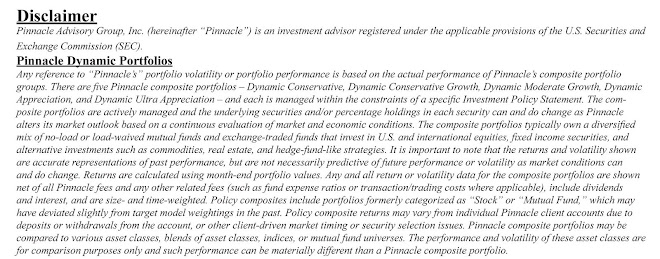I watched with a mixture of horror and amusement the other day as Tyler Mathisen, guest host on CNBC’s Squawk Box, introduced a segment with Ron Baron, an iconic value manager, by saying that Baron claimed that “buy and hold is alive and well.” As regular readers of this blog know, as the author of a book called, “Buy and Hold is Dead (AGAIN)”, I try to keep readers abreast of the latest misrepresentations and misinterpretations about the subject in the media and elsewhere. This latest nonsense comes under the category entitled, “value money managers whose definition of buy and hold has nothing to do with modern portfolio theory and is the absolute opposite of the ‘buy and hold’ message taught to investors by the media and the majority of investment advisors.”
Let’s review. Value managers begin the investment process with the somewhat conceited idea that they can better value individual securities than “the market.” Since the market is made up of literally millions of investors, the notion that any one investor has a better understanding of the true value of a security than the masses of investors who set the price on a daily basis seems unlikely. Yet, since Graham and Dodd published their book, Security Analysis, back in the mid 1930’s, where they explain how to analyze a company’s balance sheet and profit and loss statement in order to determine the fair value of a company’s stock, the best value investors have attempted to beat the market. Anyone who knows the investment business knows that Ron Baron is a long-time, ultra-successful, traditional value investor who tries to buy company shares at a discount to their fair value. For investors like Baron, or the most well-known value investor, Warren Buffet, the investment time horizon that they operate in is very long-term. Baron does not mind that it may take years for the rest of the market to discover the value of the securities he discovered through his own research. He believes the market will ultimately bid the price of his shares to their fair value, and when it does he will earn a profit. Therefore, the only context that Ron Baron believes in buy and hold is to say that he is willing to own discounted shares for as long as he needs to for the market to discover the true value of the business franchise that he owns.
In the world of strategic asset allocation, or the buy and hold investing that I refer to in my book, there is no such thing as an individual investor finding a discounted security. In the fairy tale world of buy and hold, securities are considered to always be fairly priced due to an absurd notion called The Efficient Market Hypothesis. Because markets are always deemed to be fairly valued, there are no values to be found, and so investors should simply buy and hold securities in order to earn whatever returns the market will give them. In this context for buy and hold, investors are expected to believe that the historical average returns of markets are theirs for the taking, if they are only patient enough. Clearly, patience has not proven to be a very good investment strategy since the dot-com bubble burst in March of 2000. To put Ron Baron on the air as a spokesperson for buy and hold investing reflects a fundamental misunderstanding of what he does for a living and insults his reputation as a truly outstanding value investor. It is also an example of how the investment industry and the media crush individual investors with terrible investment advice. Baron, and Buffett, would throw-up at the notion that markets are always efficiently priced and that investors can earn historical average returns regardless of the price that they pay for a security. They are perfectly happy to buy and hold their discounted shares and wait for the rest of us to figure out what they already know about the fair value of the stocks in their portfolio.
skip to main |
skip to sidebar
Subscribe via email
Who is Echoing from the Pit
This blog represents the individual opinions of the Investment Team at Pinnacle Advisory Group in Columbia, Maryland
The Investment Team comprises:
Ken Solow, CFP, CLU, ChFC
Rick Vollaro, CPA
Carl Noble, CFA
Sean Dillon
Sauro Locatelli
To learn more about Pinnacle please visit our website at http://www.pinnacleadvisory.com/
The Investment Team comprises:
Ken Solow, CFP, CLU, ChFC
Rick Vollaro, CPA
Carl Noble, CFA
Sean Dillon
Sauro Locatelli
To learn more about Pinnacle please visit our website at http://www.pinnacleadvisory.com/
About Me
- Echoes from the Pit
- Columbia, Maryland, United States
Pinnacle in the News
Blog Archive
-
▼
2011
(169)
-
▼
August
(16)
- Defensives Leading, Again
- Spending Confounds, Confidence Plummets
- More Confusion about Buy and Hold Investing
- What Goes Up…
- The Day the Fed Put Died?
- Gaming the Jackson Hole Economic Summit
- Credit Market Message: Banking Risk is Rising
- Valuation Getting Cheaper, Not Yet Compelling
- Alpha Trades and Beta Trades
- Trading in Our Scalpel for a Hatchet
- Springing into Action
- Trim the Hedges?
- Discounting a Recession
- The Golden Mean
- Hedges Are Making a Difference
- ISM Getting Everyone Refocused
-
▼
August
(16)

